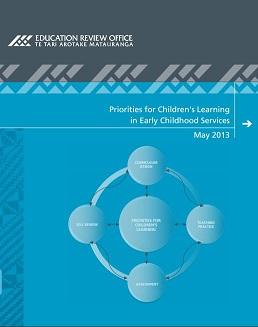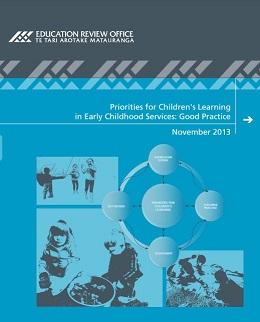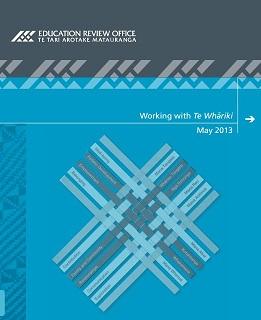Priorities for Children's Learning in Early Childhood Services
Published: 27 May 2013
This national report is one of two reports that present the findings of a 2012 national evaluation about curriculum priorities.
- Audience:
- Early learning
- Parents
- Content type:
- Research
- Topics:
- Early childhood services
- Curriculum
- Te Whāriki
- Māori
- Pacific











